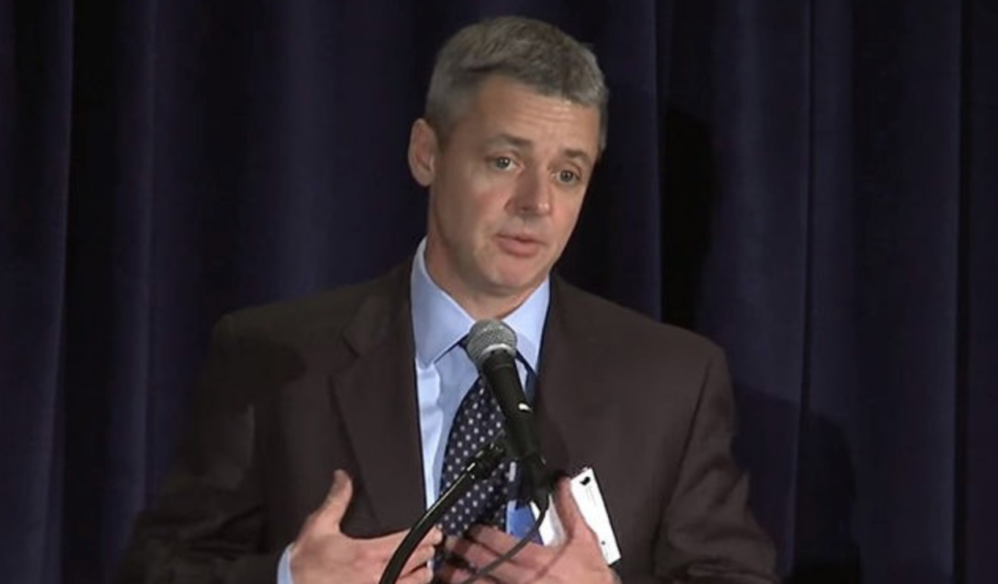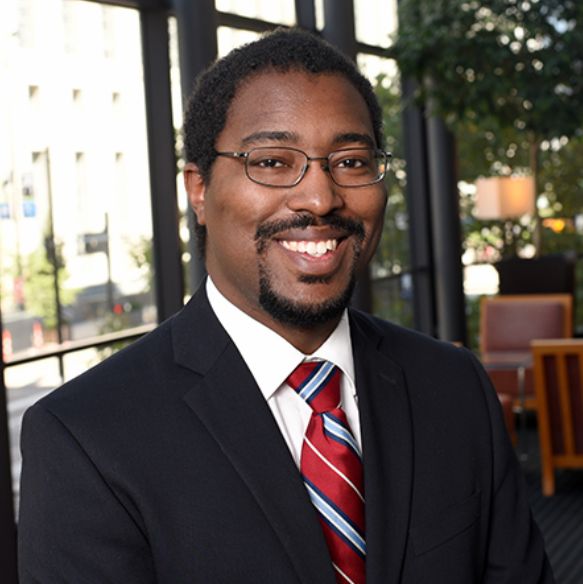During his more than 10 years on the federal bench, Judge Raymond Kethledge has been a committed originalist and textualist, meaning he applies the Constitution according to how it was publicly understood at the time it was enacted. Kethledge is well aware that, for the generation that framed the Constitution, the guarantee of religious liberty was one of the most important parts of the Bill of Rights.
Kethledge’s own faith and writings underscore this commitment. A full chapter of his book, Lead Yourself First, focuses on the faith and preaching of Pope John Paul II—a person from whom Kethledge has drawn deep inspiration.
He is a committed member and weekly attender in his local parish under the Anglican Church of North America, a conservative denomination dedicated to “the biblically-faithful way of following Jesus and being part of the ‘One Holy Catholic and Apostolic Church.’” This is no cultural affiliation or check-the-box membership, but rather a reflection of his deep and abiding faith—the product of a personal relationship with Jesus that sustains and guides him throughout his daily life.
Kethledge’s opinions show that his dedication to enforcing the framers’ guarantee of religious freedom matches his personal commitment to his own faith. A potent example is his recent concurrence in Acosta v. Cathedral Buffet. Grace Cathedral Church operated a not-for-profit restaurant partially staffed by unpaid volunteers from the church as part of their religious exercise.
The Obama administration’s Department of Labor claimed the volunteers were actually employees, and that the church violated federal regulations by not paying them, because the pastor preached on the importance of service and urged them to volunteer for the Cathedral Buffet. Kethledge joined an opinion rejecting the department’s position and protecting the right of churchgoers to operate their ministry without government interference.
Kethledge also wrote separately in Cathedral Buffet to admonish that the government “has no business regulating” the statements of a pastor to his congregation. He further wrote that “[w]hat is perhaps most troubling about the Department’s position” was “the conceit of unlimited agency power that lies behind it. The power of a federal agency is no more than worldly. The Department should tend to what is Caesar’s, and leave the rest alone.” With that rhetorical tour de force, Kethledge armed future litigants in the fight for religious liberty in the face of intolerance and government overreach.
In another case, Pedriera v. Sunrise Children’s Services, the American Civil Liberties Union sued the Commonwealth of Kentucky and a Christian organization (Sunrise) that cared for foster children, alleging that the Constitution made it illegal for Sunrise to receive some of its funding from the state. The other parties to the case—but not Sunrise—attempted to enter a settlement agreement that would have singled out Sunrise for intrusive monitoring by the ACLU and Americans United for the Separation of Church and State ,just for being religious and without even giving Sunrise the opportunity to object to the consent decree. Kethledge vacated the order, holding that Sunrise was entitled to contest an order that would have subjected the religious group to intrusive monitoring from openly hostile organizations like the ACLU and Americans United.
Taken together, cases like Cathedral Buffett and Sunrise demonstrate Kethledge’s understanding that religious belief is not something that happens solely inside a church; people of faith put their beliefs into practice through charities, businesses, and other endeavors, and the constitutional right to free exercise of religion applies to those activities as well. Protecting the right of religious believers to take their faith into the world has never been more important, as recent cases in the Supreme Court involving religious business-owners have shown.
Kethledge also recognizes that, while the Constitution’s Establishment Clause prohibits the government from adopting an official religion, it does not require excluding all mentions of religious belief from public life. In Bormuth v. County of Jackson, a self-described pagan and animist sued a local Board of Commissioners for beginning its sessions with a prayer. Kethledge ruled that this legislative prayer did not violate the Establishment Clause.
The court’s opinion echoed the Supreme Court’s acknowledgement nearly 70 years ago that “we are a religious people whose institutions presuppose a Supreme Being,” and thus that “[t]he opening of sessions of legislative and other deliberative public bodies with prayer is deeply embedded in the history and tradition of this country”—so much so that “[a]ll three of our branches of government have officially acknowledged religion’s role in American life.” The opinion emphasized that the long American historical tradition of such official government prayers is a guide to correctly interpreting the Constitution.
Kethledge understands that the right to religious freedom is intertwined with the constitutional right to freedom of speech. He has repeatedly voted to protect evangelists who wish to preach in public, even when those speakers are considered offensive or bothersome by the government. In Bible Believers v. Wayne County, Kethledge ruled that a local government could not prevent a group of Christian evangelists from sharing the gospel and criticizing Islam at an Arab International Festival. The court’s opinion stated that it did “not question the sincerity” of the group leader’s claim that “he was required ‘to try and convert non-believers, and call sinners to repent’ due to his sincerely held religious beliefs.”
Similarly, in Bays v. City of Fairborn, Kethledge ruled that police officers had violated the First Amendment when they arrested two Christians for walking around a street festival with a sign saying “Jesus is the Way, the Truth and the Life.” The court’s opinion specifically rejected the city’s claim that it was entitled to attempt to shield persons in public from speech that some might not want to hear.
Finally, Kethledge understands that, to successfully protect religious liberty in accordance with the First Amendment, persons of all types of faiths must be protected against government interference. In Bishawi v. Northeast Ohio Correctional Center, Kethledge held that a prisoner who was placed in segregation “because he was a Muslim and a threat to Christians” stated a claim for violation of the Constitution, because the animus against him was based on his religion.
In sum, throughout his career, Kethledge has fiercely defended the constitutional right to religious freedom that is enshrined in the First Amendment.



